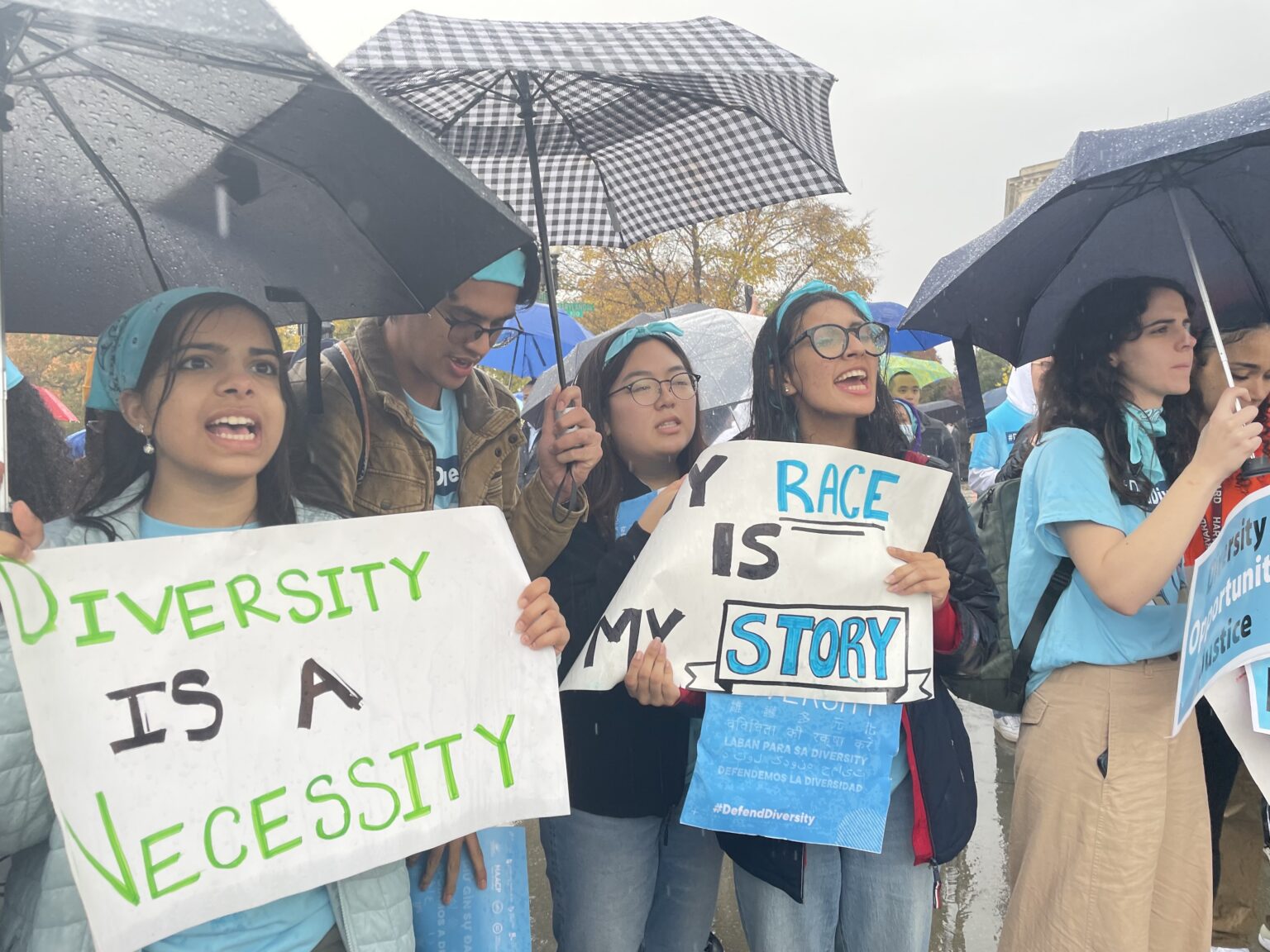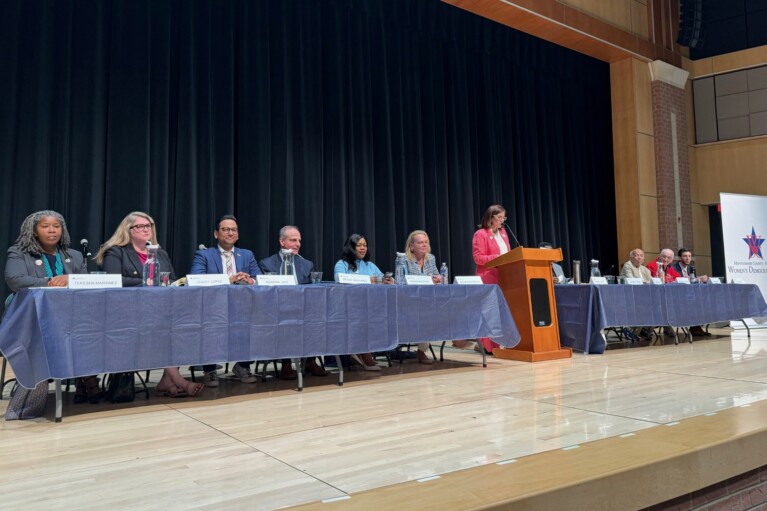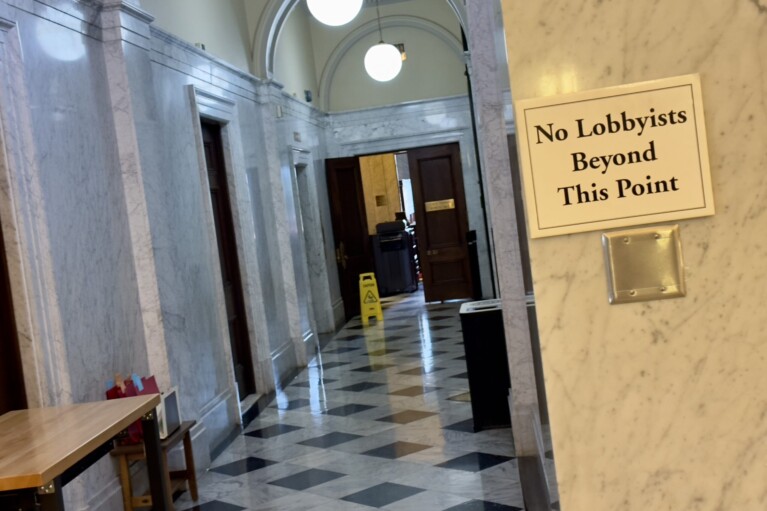U.S. Supreme Court strikes down use of affirmative action in college admissions

The U.S. Supreme Court on Thursday ruled that two prominent universities’ consideration of race in acceptances violated the U.S. Constitution, effectively reshaping the role of affirmative action in the college admissions process throughout higher education.
In a 6-3 decision, Chief Justice John Roberts, writing for the majority, wrote that the admissions processes at Harvard University and the University of North Carolina violate the equal protection clause of the 14th Amendment.
“Because Harvard’s and UNC’s admissions programs lack sufficiently focused and measurable objectives warranting the use of race, unavoidably employ race in a negative manner, involve racial stereotyping, and lack meaningful end points, those admissions programs cannot be reconciled with the guarantees of the Equal Protection Clause,” Roberts wrote.
“Many universities have for too long wrongly concluded that the touchstone of an individual’s identity is not challenges bested, skills built, or lessons learned, but the color of their skin. This Nation’s constitutional history does not tolerate that choice,” Roberts continued.
Because Harvard is a private institution and UNC is a public institution, this decision affects higher education across the board.
The three liberal justices, Sonia Sotomayor, Elena Kagan and Ketanji Brown Jackson dissented.
Sotomayor wrote the dissenting opinion, and argued that while the equal protection clause “enshrines a guarantee of racial equality,” the Supreme Court “long ago concluded that this guarantee can be enforced through race-conscious means in a society that is not, and has never been, colorblind.”
“In so holding, the Court cements a superficial rule of colorblindness as a constitutional principle in an endemically segregated society where race has always mattered and continues to matter,” she wrote. “The Court subverts the constitutional guarantee of equal protection by further entrenching racial inequality in education, the very foundation of our democratic government and pluralistic society.”
Sotomayor argued that Harvard and UNC both “have sordid legacies of racial exclusion.” UNC’s founders included slaveholders and members of the white supremacist group the Ku Klux Klan and the university resisted integration until it finally admitted the first Black student in 1963, she wrote.
“To this day, UNC’s deep-seated legacy of racial subjugation continues to manifest itself in student life,” she wrote, noting that many buildings still bear the names of members of the Ku Klux Klan.
Sotomayor noted that slavery and racial subordination were integral to Harvard’s founding.
“It is against this historical backdrop that Harvard and UNC have reckoned with their past and its lingering effects,” she wrote.
Jackson joined that dissenting opinion but recused herself from the Harvard portion of the decision.
Jackson participated in the debate of the UNC case but not the Harvard case because she is a graduate of Harvard College and Harvard Law School and recently sat on the Harvard Board of Overseers, which is one of the two governing boards for Harvard University.
The decision stems from a 2014 lawsuit against Harvard College and a separate lawsuit against the University of North Carolina. The two suits sought to overturn Grutter v. Bollinger, which is currently how universities use race-conscious admissions.
Harvard and UNC have argued that race is one of the many factors that the universities consider in admissions, along with socioeconomic status and extracurricular activities, and they make admission decisions within the guidelines set by Grutter.
Both suits were filed by a group called Students for Fair Admissions, which is funded by Edward Blum, a conservative legal activist who has launched multiple lawsuits over what he sees as racial preferences in school admissions.
For the Harvard case, the group alleges that Harvard violated Title VI of the Civil Rights Act because Asian American applicants are less likely to be admitted compared to similarly qualified Black, Latino or Indigenous applicants. Title VI bars institutions that receive federal funding from discrimination on the basis of race.
The UNC case argues that because the university takes into consideration race in its admissions process, it violates the 14th Amendment’s equal protection clause.
Federal courts rejected Students for Fair Admissions’ arguments and sided with the universities.
Affirmative action stemmed from the civil rights movement of the 1960s, when President Lyndon B. Johnson issued an executive order barring discrimination in the workplace based on race, religion — and later gender — by those entities that received federal contracts and subcontracts.
There are nine states that have banned race-based affirmative action from being implemented in public institutions: Florida, California, Michigan, Nebraska, Arizona, New Mexico, Oklahoma and Idaho. Washington state rescinded its ban on affirmative action in 2022.
‘My heart breaks’
Current and former lawmakers and leaders released statements and posted on social media their reactions to the decision.
Less than an hour after the decision, former President Barack Obama, the nation’s first Black leader to hold the office, and former first lady Michelle Obama released statements that included links to scholarship funds and organizations focused on college access for minority students.
“So often, we just accept that money, power, and privilege are perfectly justifiable forms of affirmative action, while kids growing up like I did are expected to compete when the ground is anything but level,” Michelle Obama said.
“So today, my heart breaks for any young person out there who’s wondering what their future holds — and what kinds of chances will be open to them. And while I know the strength and grit that lies inside kids who have always had to sweat a little more to climb the same ladders, I hope and I pray that the rest of us are willing to sweat a little, too,” she continued.
Former President Obama said affirmative action “wasn’t perfect.”
“But it allowed generations of students like Michelle and me to prove we belonged. Now it’s up to all of us to give young people the opportunities they deserve — and help students everywhere benefit from new perspectives,” he said.
Senate Majority Leader Chuck Schumer of New York called the decision “misguided” and said it “has put a giant roadblock in our country’s march toward racial justice.”
“The consequences of this decision will be felt immediately and across the country, as students of color will face an admission cycle next year with fewer opportunities to attend the same colleges and universities than their parents and older siblings. These negative consequences could continue for generations, as the historic harms of exclusion and discrimination in education and society are exacerbated,” Schumer said in a statement.
Former South Carolina governor and 2024 GOP presidential candidate Nikki Haley hailed the decision.
“The world admires America because we value freedom and opportunity. The Supreme Court reaffirmed those values today. Picking winners and losers based on race is fundamentally wrong. This decision will help every student — no matter their background — have a better opportunity to achieve the American Dream,” she said in a statement issued immediately following the decision.
Maryland leaders react
Maryland’s Legislative Black Caucus issued a statement condemning the Supreme Court decision and calling on Maryland higher education institutions to act. “Ultimately, higher education is strengthened by students from all walks of life living, learning, and growing together at our colleges and universities. We thrive when we intentionally include the talents and potential of students from all backgrounds,” caucus Chair Jheanelle Wilkins said.
The caucus urged “every Maryland institution to publicly affirm in word and in action their commitment to communities that have been historically and presently harmed by historic segregation and exclusion in higher education, and work within the new legal parameters to realize true inclusion.”
Maryland House Speaker Adrienne A. Jones (D-Baltimore County), the first Black person to hold her position, called the majority opinion “another disheartening blow to our country’s efforts to address the pervasive gaps created by slavery, Jim Crow and segregation.”
“I know first-hand the impact a college education can have on the trajectory of one’s life. Abolishing Affirmative Action will have far reaching implications for Marylanders,” her statement continued. “While this is a profoundly sad day for our country and our state, I have already begun working with Attorney General [Anthony] Brown to look at all our options to mitigate the effects of this extreme decision by the Supreme Court.”
Senate President Bill Ferguson (D-Baltimore) said in a statement Thursday that the legislature has worked with the attorney general’s office to pass other legislation “with race-neutral criteria dealing with issues like procurement and recreational cannabis licensing that accomplishes the same underlying intent of enhancing economic justice.”
“That approach will continue moving forward, as we evaluate further actions the legislature can take to safeguard our State against these radical decisions by the United States Supreme Court,” the statement continued.
Brown said the court’s decision upends decades of legal precedent.
“We must not let that happen. A diverse student body enriches the educational experience for all students, creating a vibrant learning environment where students are exposed to different ideas and challenged to think critically,” Brown said. “It helps break down barriers, fostering greater understanding and empathy. It prepares students for an increasingly diverse work force in an increasingly interconnected world.”
Anthony L. Jenkins, president of Coppin State University, one of Maryland’s four HBCUs, said the court’s decision will have wide-ranging short- and long-term effects, “including a chilling effect on campuses where students of color and students from underrepresented backgrounds question whether they belong, are accepted, and are valued.”
But, Jenkins said, the hope is that the ruling “does not deter diverse students from pursuing their educational dreams at any institution of their choice.”
“Their intellect and creativity are important and greatly needed across the entire landscape of higher education. Institutions of higher education should serve as inclusive places where important life-changing issues can be discussed, and solutions can be created by diverse minds. They should not be places where those conversations are silenced,” Jenkins continued.
Officials from the University of Maryland College Park released a statement that said it remains unclear how the “disappointing” decision will affect the school.
But “we have a clear, loud and true message: we will remain a national leader by encouraging and supporting students of all backgrounds as they apply, enroll and graduate from the University of Maryland,” said school president Darryll Pines and provost Jennifer King Rice. “The educational value of campus diversity is one we will not sacrifice.”
Rep. Kweisi Mfume (D-5th) called the court’s decision “shameful.”
“The effects of 200 years of slavery and 100 years of Jim Crow laws cannot be erased or overcome without first attempting to provide educational opportunities to balance the scale of historic discrimination,” Mfume said in a statement. “Today’s destructive court decision will over time energize a whole new generation of young people to now realize that the issue of race and skin color has not gone away, and that unfortunately, it still dominates too many aspects of the American system of higher education.”
Oral arguments
During oral arguments last year, members of the court’s conservative wing, who now make up a 6-3 majority, questioned if it is legal for universities to consider race and for how long such policies should endure, pointing to a 2003 case that predicted that affirmative action would no longer be needed in 25 years.
The case, Grutter vs. Bollinger, allowed the limited use of race to be considered in college admissions, and held that race was merely one of many considerations given in an applicant. The case allowed the University of Michigan Law School to consider race in its admissions process in order to help create a diverse student body.
Justice Clarence Thomas, a conservative and the only Black man on the Supreme Court, pressed lawyers defending the schools’ policies on how diversity benefited education.
“I didn’t go to racially diverse schools but there were educational benefits. And I’d like you to tell me expressly when a parent sends a kid to college that they don’t necessarily send them there to have fun or feel good or anything like that. They send them there to learn physics or chemistry or whatever they’re studying,” Thomas said to Ryan Park, the attorney representing UNC. “So tell me what the educational benefits are to that?”
During oral arguments in October of last year, supporters of affirmative action rallied outside the Supreme Court.
Danielle E. Gaines and William J. Ford contributed to this report.





 Creative Commons Attribution
Creative Commons Attribution